“Curiouser and curiouser.”
|
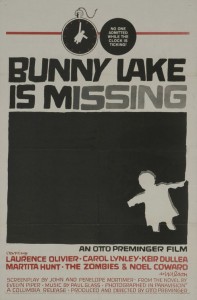
Synopsis:
In London, a young American (Keir Dullea) tries to help his unwed sister (Carol Lynley) find her missing daughter, Bunny.
|
|
Genres, Themes, Actors, and Directors:
- Carol Lynley Films
- Keir Dullea Films
- Laurence Olivier Films
- Mental Illness
- “No One Believes Me!”
- Otto Preminger Films
- Search
- Single Mothers
Response to Peary’s Review:
This atmospheric, well-acted thriller — a “cult variation on So Long at the Fair” — plays upon two of our deepest fears: losing a child, and not being believed in a life-or-death situation. As Peary notes, director Otto Preminger “makes a strong point about the difficulty aliens (Americans in England, unwed mothers) have getting help”, and bravely deals in his script with issues such as “illegitimacy, homosexuality, and incest”; meanwhile, his “camera work has a feverish intensity” which keeps one consistently engaged. Though many critics seem to dislike the film’s gut-wrenching denouement (which “diverges from Evelyn Piper’s [source] novel”), I’ll admit I was so caught up in the story that I was easily able to overlook any gaps in logic or consistency.
Redeeming Qualities and Moments:
- Creative opening titles by Saul Bass
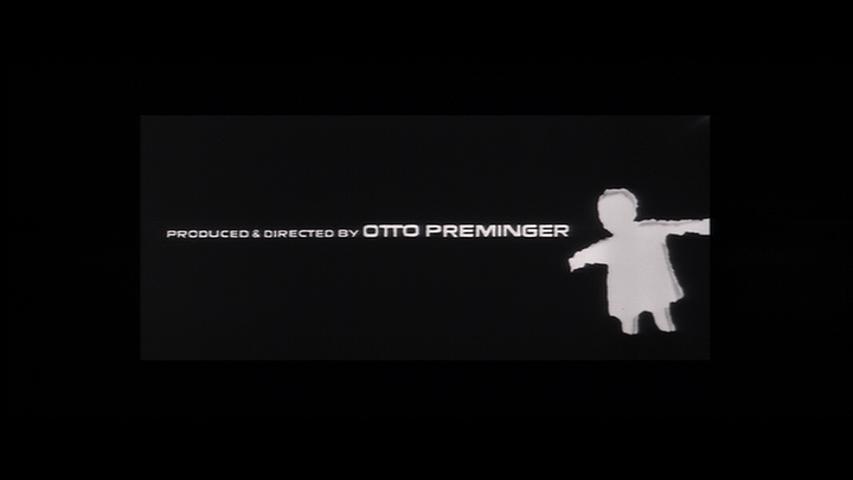
- A suspenseful mystery with lots of “red herrings”
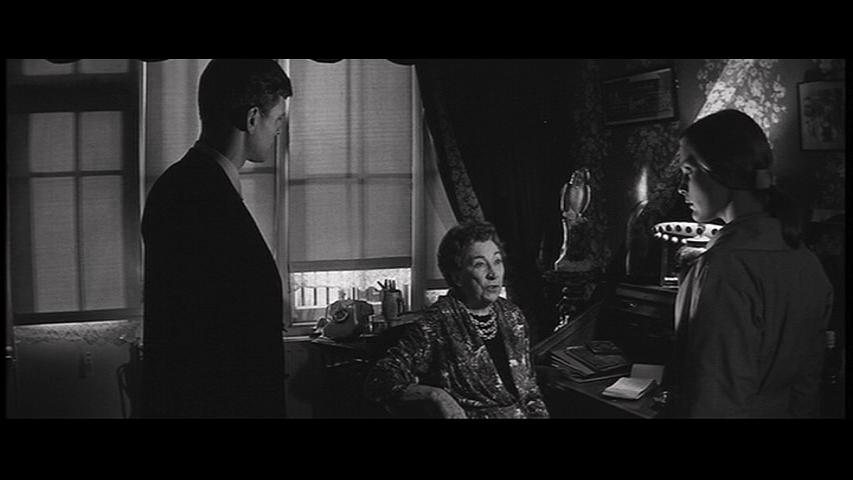
- Effective use of strange locales (such as the “doll hospital”)
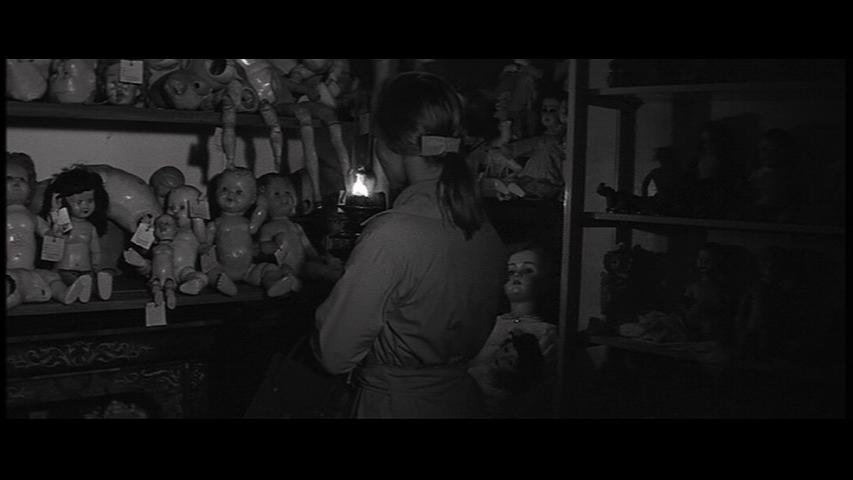
- Laurence Olivier’s understated performance as a police detective on the case
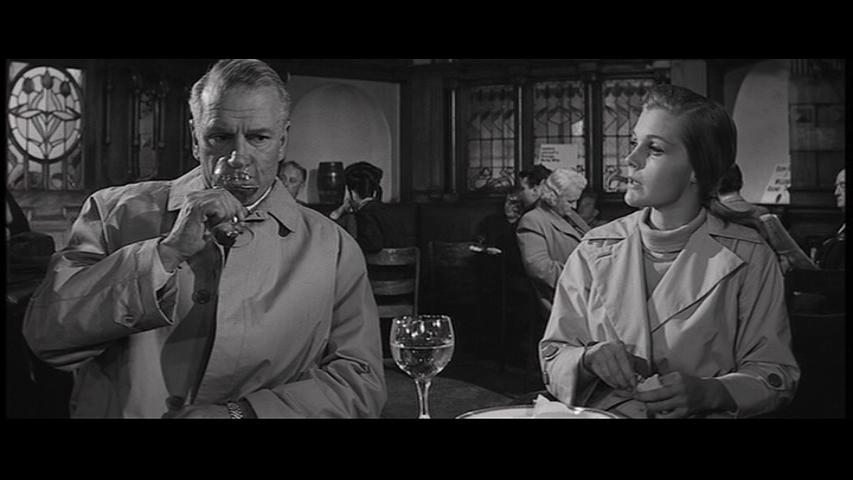
Must See?
Yes. Though it’s not as famous as other Preminger classics, this cult thriller is well worth watching.
Categories
Links:
|
One thought on “Bunny Lake is Missing (1965)”
Good enough to be a once-must — doesn’t hold up well beyond that — and, to be appreciated, it’s best seen in LBX, as Denys Coop filmed it marvelously. The impediment to satisfaction here is twofold: the social no-no involved (it doesn’t take much to see it coming) is not as “under the rock’ as when Preminger made the film; the leads are less-than-perfect: Lynley does get better as the film progresses, but Dullea (better elsewhere: “2001: A Space Odyssey’, “The Fox’) seems unwieldy.
Acting-wise, it’s the supporting cast that boosts “Bunny’. Much-loved for his hammier performances, Olivier’s underplaying here grounds the film. Anna Massey (also good in “Peeping Tom’ and “Frenzy’) is dependable; Martita Hunt is delightful as the headmistress; Finlay Currie’s dollmaker is a small but solid plot device (“Love inflicts the most terrible injuries on my small patients.”); gay writer Noel Coward is aptly distasteful (“No autographs — but you may touch my garment.”) as the (hetero? bi?) landlord who at least flirts with S&M.
In spite of an odd transition, the last half-hour is a marvel of economy and the quick pace is welcome. Apparently, “Bunny’ is now being remade (!), with Reese Witherspoon. In the original, certain “what happened’ issues ultimately remain murky; I can only think that the remake will opt for a more modern, JonBenet Ramsey-esque turn.